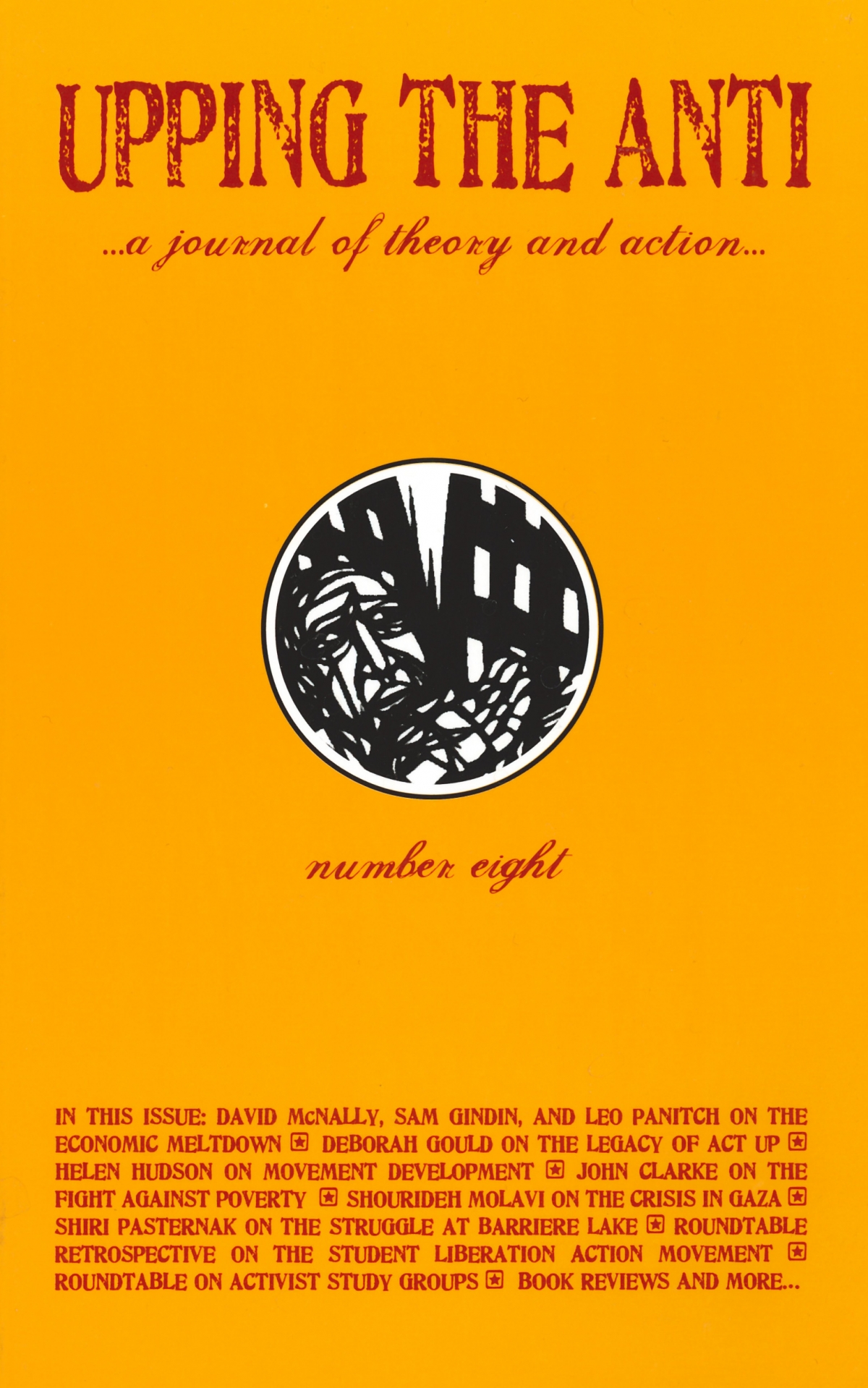Response to Flemming
Dear UTA,
Flemming’s response is a welcome supplement to my review of In Defense of Lost Causes (UTA 7). That Flemming undertakes an analysis of the CUPE 3903 strike is notable because he demonstrates what to “do” with Zizek (albeit in a circuitous way): avoid some enforced, tight-fitting box around a political or material problem and avoid prescribing a proper “Zizekean” approach.
Let me address Flemming’s specific points of criticism. First, on drawing conclusions that Zizek would not: so? While the review was a discussion of the book, it was also intended to encourage UTA readers to consider ways to overcome our present impasse.
Second, Flemming argues that I didn’t go far enough in relation to Zizek’s conception of “wagers” and “risks.” Like Flemming, I acknowledge that Zizek develops the idea of risk and politics in ontological terms. The risk and wager of entering the “political” requires a movement into a place not covered by the safety of symbolic-social containers into which we activists, radicals, and self-hating fence-sitters regularly insert ourselves.
According to Flemming, “the true ‘risk’ of the wager” is that “you lose everything you thought you had but gain a clean slate from which to engage in what Zizek calls ‘creative sublimation’.” True, but I’m not sure he picks up on my point that the current situation is not dire enough for self-proclaimed radicals to lay it on the line. Take the CUPE 3903 strike. Certainly, opposing casualized flexploitative capitalism is important. However, I’m not sure that any “clean slate” is possible for those seeking guarantees for their careers, for reliable income, or for a stable site from which to call for intellectual, social, and economic emancipation.
Bataille wrote about expenditure without returns. This is, I think, the fear of many with energy to burn: effort, risk, and utter failure. It would also qualify as an adequate political failure in Zizek’s defense of lost causes. Recall the objective of the lost causes defended: the courage to endorse a state-form other than the current liberal-capitalist-parliamentary type with its biopolitical guarantees.
I agree that one needs to better consider the actual constitution of the risk-takers (not assuming some easy “We, together in solidarity”) and the very nomination of “the current situation.” At the same time, I agree with Zizek’s advice about intellectual honesty. We must discard the safe cover available to those content to diagnose symptoms, repression, and drives that endlessly circle their object-targets.
Third, Flemming argues that I don’t go far enough with the notion of “the possible” and that I go too far with respect to “disciplined commitment” and the “concerted program.” For me, both of these criticisms are connected, if only because I’m inclined to answer them in relation to the explicit historical project Zizek discusses at the end of the book. Essentially, Zizek argues for a two-headed plan that plays between virtual risks and actual threats: anticipating the prospects of a political future where the left has little to no purchase or relevance; and taking measures here and now to avert the actualization of such a situation, thereby realizing something else entirely.
Flemming and I also agree on the matter of “talk.” However, I argue that for Zizek, a plan and the good fundamentalism of indifference is altogether necessary. Idle, groundless, and dangerous talk may indeed provide a “pratico-pragmatic” opening. However, the spark that is unrealizable and impossible from “the standpoint of present” still requires some nomination about the timely necessity of an act. It is a responsive and rationalized move, even ?if it does bear fruit in the form of “creations that … cannot be known prior to their own emergence.” The premise: something needs to be done to mitigate the risk of the future being actualized.
Ultimately, I agree with Zizek that we must invite and take terrifying risks now to confront a terrifying future-past that hurtles towards the present. For Zizek, emancipatory politics and radical egalitarianism are realized via the pure means of preemption.
Still safely covered,
Neil Balan
The east bank of Saskatoon

